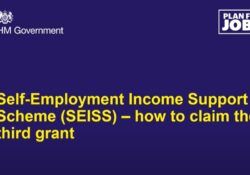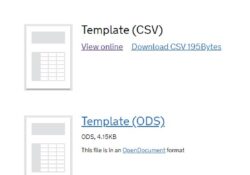
BUSINESS NEWSLETTER
As the UK national lockdowns continue, we are pleased that there is some good news for hospitality and other businesses who were closed by the Government in the first lockdown, after the Supreme Court ruled that insurers should pay business interruption claims.
In this newsletter, we summarise the findings and provide an update on Brexit and the latest Government news on supports for businesses.
Please contact us if you want to talk about how these updates affect your business. We are here to support you through these tough times.
Small firms in line for business interruption insurance pay out
The Financial Conduct Authority (FCA) has won its court case to get insurers to pay out for business interruption due to the first lockdown in the spring of 2020. The Supreme Court says it “substantially allows” the appeal by the FCA and hospitality groups. The decision affects approximately 370,000 policyholders and over £1billion in claims which should now be paid out.
Small businesses including pubs, cafes, wedding planners and beauty parlours, argued they faced becoming insolvent when they were refused compensation by insurers for business interruption policy claims on losses caused by the first national COVID-19 lockdown.

Some of the world’s largest commercial insurers including Hiscox, Royal Sun Alliance, QBE, Argenta, Arch and MS Amlin, told the Supreme Court in an appeal that many business interruption policies did not cover widespread disruption. The Court ruled against them.
This now means that the Supreme Court ruling will provide guidance on the claim adjustment process and it is hoped that this will progress quickly.
See: https://www.supremecourt.uk/cases/uksc-2020-0177.html
The FCA has stated that they will be working with insurers to ensure that they now move quickly to pay claims that the judgment said should be paid, making interim payments wherever possible. Insurers should also communicate directly and quickly with policyholders who have made claims affected by the judgment to explain next steps.
Brexit update
Introduction
The UK and the EU agreed future trading terms of the UK-EU Trade and Cooperation Agreement. The UK has approved the agreement and it came into effect provisionally on 31 December 2020, whilst awaiting the EU to take steps to approve it.

See the agreement here: https://www.gov.uk/government/publications/agreements-reached-between-the-united-kingdom-of-great-britain-and-northern-ireland-and-the-european-union
Brexit: new rules – Government guidance
The Government has updated its guidance on the new rules that apply to travel and doing business with Europe. Clearly there are problems with the administration just now and we will keep you up to date of any issues as they arise.
You can check using the website below on what you need to do differently if you are:
- importing goods from the EU
- exporting goods to the EU
- moving goods to or from Northern Ireland
- providing services to EU countries
- travelling to the EU
- living and working in the EU
- staying in the UK if you are an EU citizen
See: https://www.gov.uk/transition
Selling services to the EU, Switzerland, Norway, Iceland and Liechtenstein
The UK-EU Trade and Cooperation Agreement ensures that UK firms in a variety of service sectors can continue to access the EU market, including as business travellers and cross-border services suppliers or investors, while being treated no less favourably than either EU businesses or competitors from third countries.
While the Agreement sets out expectations of the treatment and level of access to each Party’s domestic market, there will still be some changes for business as a result of no longer operating under European Economic Area (EEA) regulation covering cross-border trade in services. These changes are different for each sector and differ in each member state of the EU.
For Government guidance for UK businesses on rules for selling services see: https://www.gov.uk/guidance/providing-services-to-any-country-in-the-eu-iceland-liechtenstein-norway-or-switzerland-after-eu-exit
There are country guides and information for UK businesses providing services and travelling for business to countries in the EEA and Switzerland: https://www.gov.uk/government/collections/providing-services-to-eea-and-efta-countries-after-eu-exit
Data sharing
How this affects your business will depend on several factors, including the nature of your business and where your customers are located. Data sharing with the EEA is one of the key areas to consider.
The Government has legislated so that UK firms can continue to lawfully send personal data from the UK to the EEA and 13 other countries that the EU has deemed to provide an adequate level of protection of personal data. They have also announced that the UK-EU Trade and Cooperation Agreement provides for the continued free flow of personal data from the EU and EEA to the UK until adequacy decisions are adopted, for no longer than 6 months.
The Information Commissioner’s Office (ICO) states that the agreement between the UK and the EU enables businesses and public bodies across all sectors to continue to freely receive data from the EU (and EEA). However, as a sensible precaution, the ICO recommends that businesses work with EU and EEA organisations who transfer personal data to them, to put in place alternative transfer mechanisms to safeguard against any interruption to the free flow of EU to UK personal data.
This means that businesses and organisations can be confident in the free flow of personal data from 1 January, without having to make any changes to their data protection practices.
See: https://ico.org.uk/about-the-ico/news-and-events/news-and-blogs/2020/12/ico-statement-in-response-to-uk-governments-announcement-on-the-extended-period-for-personal-data-flows-that-will-allow-time-to-complete-the-adequacy-process/
The new rules will take some time to “bed in” and we will keep you updated on practical actions to take and as new rules or agreements are made between the UK and the EU.
Covid – 19 update
National Lockdown
Following the recent confusion about the National lockdown rules and the contradictory press interviews by several ministers and their departments, the Government has updated its guidance for England on what we can and cannot do. Whether this makes matters clearer we will have to wait and see.
The welcome news is the fact that more than 3.4 million people have now received the first dose of a vaccine and nearly 50 per cent of the over 80’s.
The current lockdown rules can be found here:
- England: https://www.gov.uk/guidance/national-lockdown-stay-at-home
- Scotland: https://www.gov.scot/publications/coronavirus-covid-19-protection-levels/
- Wales: https://gov.wales/coronavirus
- Northern Ireland: https://www.nidirect.gov.uk/articles/coronavirus-covid-19-regulations-guidance-what-restrictions-mean-you
Kickstart Scheme grant
If you are an employer looking to create 29 or less job placements for young people, you can apply for funding as part of the Kickstart Scheme. The Government has added information to its guidance about how to add new job placements to the grant agreement in ‘After you have applied’.
There is also updated information for organisations who want to be a Kickstart gateway and help employers apply for the Kickstart Scheme with information about how to add new job placements or employers to the grant agreement in ‘After you have applied’
If you are an employer looking to create 30 or more job placements, the updated guidance can be seen here: https://www.gov.uk/guidance/apply-for-a-kickstart-scheme-grant-30-or-more-job-placements?utm_medium=email&utm_campaign=govuk-notifications&utm_source=822a0175-d204-4189-91e0-2e5529b8e4d3&utm_content=daily
Self-Employment Income Support Scheme Grant Extension – new YouTube video
You can watch HMRC videos to learn more about the support available to help you deal with the economic impacts of coronavirus. A new YouTube video about the Self-Employment Income Support Scheme Grant Extension has been made available.

Job Retention Scheme – Claiming for more than 100 employees
HMRC have updated their template if your clients are claiming for 100 or more employees through the CJRS. Complete a template with the details of the employees you are claiming for and upload this when you claim.

Working in England if you are a senior executive bringing significant economic benefit to the UK
Exemption from quarantine for senior executives bringing significant economic benefit to the UK was suspended as of 4am on Monday 18 January 2021.
Closing certain businesses and venues in England
This guidance sets out restrictions on certain businesses and venues in England during National Lockdown. There is updated guidance for business closures in line with the latest government guidance.
Travel corridors and pre-travel testing – England
Emergency measures have been introduced at the border to be in place for at least one month in order to protect the UK against new variants.
The list of countries, territories and regions from where people can travel to England and may not have to self-isolate is now suspended.

From today, if travellers do not present proof of a negative coronavirus (COVID-19) test result, they may not be able to board to travel to England and could be fined £500 on arrival. Anyone arriving from the 18th January must self-isolate for 10 days and complete a passenger locator form.
See: https://www.gov.uk/guidance/coronavirus-covid-19-travel-corridors
For more information , Book a Free Consultation
Need Accountancy Support?
For information on bespoke training, or if you have any other questions for Makesworth Accountant, please fill in your details below




















 148
148